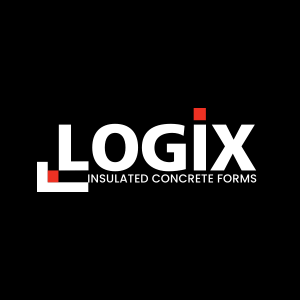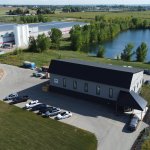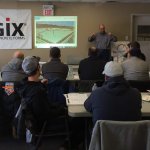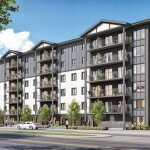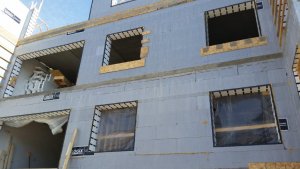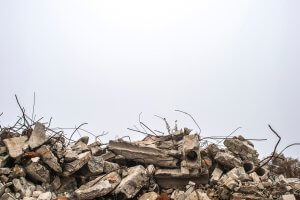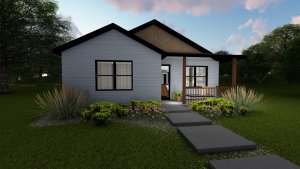Wildfires have been increasing since the 80s. And they are only getting deadlier. We know this because of recent data from the National Climate Assessment.
California just experienced the deadliest wildfire season in its history, destroying more than 18,000 buildings and claiming the lives of 104 people. And this isn’t just the case in the United States. A recent federal report from Natural Resources Canada has also shown that forest fires have tripled in the past year alone.
So the question is this: how can you create a fire-resistant home? In many areas, insurance for fire is getting a lot harder to get. Whether you’re a homeowner, general contractor or architect, fire safety needs to be a top priority now more than ever.
This blog post will take a look at a home that managed to survive the recent Camp Fire in Paradise, California, the deadliest and most destructive wildfire in the USA since 1918, and how homeowners, general contractors and architects alike can build homes that are fire-resistant.
We will speak to Kent Yonker, the pioneer behind the Build Fire Safe California, an initiative designed to educate architects, builders and homeowners on how to create fire-safe homes. He has 40+ years in the construction industry.
According to Yonker, in the Wildland-Urban Interface (WUI), “it’s not if you will lose your home but when.”
How A Home In Paradise Survived The Camp Fire
As you will see in the video below, this home in Paradise managed to survive the destructive Camp Fire of 2018 while many of the surrounding homes and structures were tragically destroyed:
As Yonker points out, people continue to build houses out of wood even though they just end up burning down. Cal Fire, for instance, recommends that homes have at least 100’ of defensible space between the home and combustible materials.
Why then, Yonker points out, would you build your walls from a combustible material?
When it comes to building fire-resistant homes, both site and structure are important. “Resiliency is the new green in building,” according to Yonker.
As for site considerations, Yonker says the first question architects and design teams need to ask themselves is, “What are the factors that could destroy the building, like local threats?” For instance, is it located in a high flood, wind or wildfire area?
So, how did this home manage to withstand a fire?
As for the structure and materials of the home, the walls were built with Logix insulated concrete forms (or ICFs for short).
This isn’t the first time that an ICF-built home survived a fire. You can read about how this home survived a firestorm in Rancho Bernardo while 2,000 other homes in the area were destroyed. This same home survived a wildfire the year before (along with three other ICF-built homes in the area).
The home in Paradise was also finished with stucco, which doesn’t burn.
Of course, there are other design considerations when it comes to creating a fire-safe home. In general, the more that a building or home can prevent itself from catching burning embers, the less likely it is to catch on fire. Windows, large overhangs, inside corners, holes and openings and vents can all allow embers to get trapped.
In the case of the Paradise home, it only has a few vents, which limited the number of embers that could get in and start a fire.
You can read more about how design can contribute to a fire-safe home here.
Why ICFs Are Critical For Fire-Resistance
As you saw above, the home in Paradise managed to withstand a fire due to several different design features, but an important one was the fact that it had walls built out of ICFs.
If you aren’t familiar with ICFs, think of them like blocks that stack together like lego. These blocks are made out of expanded polystyrene (EPS) foam panel. Steel reinforcement bars are placed in-between these blocks, which are fire-resistant. Concrete is then poured inside the blocks as well.
This is why ICFs are also hurricane-resistant. In fact, Logix ICF homes can withstand winds of over 300 miles per hour.
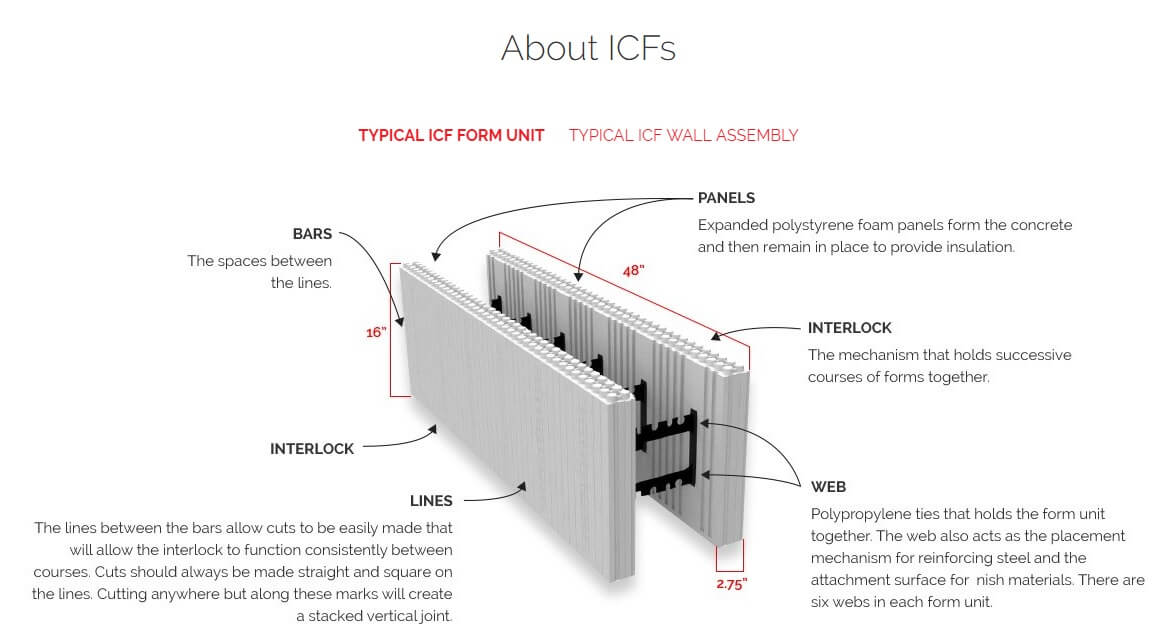
This is why ICFs are a much safer choice than wood:
It only takes 15 minutes for a wood-frame home to catch on fire. As a reference point, Logix ICF homes have a four-hour fire rating. In fact, ICF walls have been tested up to 2000 degrees Fahrenheit (typical in a common house fire) while wood walls typically collapse within an hour.
Essentially, walls made out of concrete prevent fire from spreading to the inside of the home. Wood, however, allows both heat and flames to pass through to start a fire, which is why they collapse so quickly.
You can add even more fire-resistance with ICF windows and door bucks, which add a layer of insulation and stop air and moisture from getting in. Similarly, steel and concrete ICF floors prevent fire from spreading between different levels of a home as well.
But, ICFs are the better choice for other reasons as well. The Logix wall system is easy and quick to build with its stack and pour method, a process that is completed in just a few steps. In fact, many builders shave weeks off of their build time, which means lower labour costs as well. Building with wood comes with high labour costs because it’s more difficult to build and requires larger crews.
However, the fact that the Logix ICF wall system is easy and quick to build is critical after a fire. It means that communities get built faster. With a shortage of skilled workers in fire-prone areas, this is all the more critical.
You can read more about why general contractors choose ICFs here.
Wrapping It Up
With wildfires on the rise in both the US and Canada, homeowners, builders and architects need to prioritize fire safety.
For homeowners, building with ICFs means protecting your family and home against the devastation that a fire can bring.
For builders and architects, building fire-resistant homes is a way to differentiate yourself from the competition, especially given that ICFs offer many other benefits for homeowners, from energy-efficiency to higher comfort to disaster-resilience and more.
For more information on how Logix ICF contributes to a fire-resistant home or building, click here. To request a quote, get more information, or to talk to a Logix Advisor, contact us here today.
